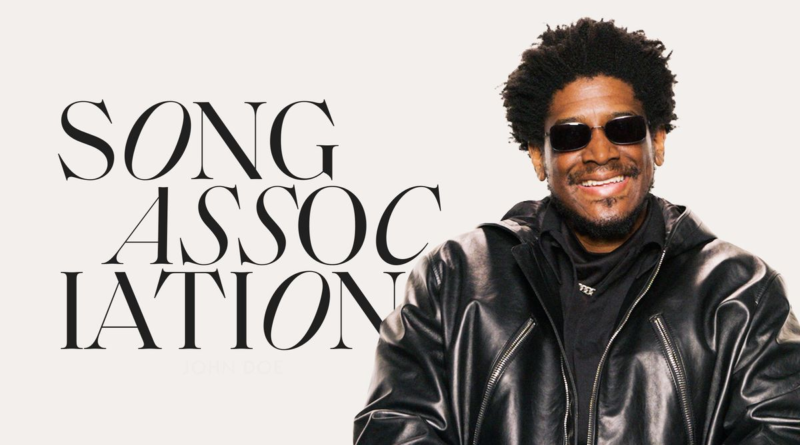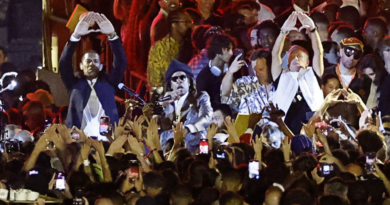What’s Really at Stake in the Writers’ Strike? WGA’s Chief Negotiator Explains
Ellen Stutzman has worked at the Writers Guild of America (WGA) for 17 years, starting as a research analyst in 2006 and rising through the ranks to assistant executive director by 2018. Earlier this year, as the expected-to-be-contentious contract negotiations with the Alliance of Motion Picture and Television Producers (AMPTP)—which represents the big Hollywood studios, including Netflix, Amazon, Apple, Disney, Warner Bros. Discovery, NBCUniversal, Paramount, and Sony—were approaching, the WGA announced that Stutzman would be taking on a new role: chief negotiator.
While these discussions typically happen every three years, this year’s meeting was anticipated as one where a strike could very well happen, with a wide gap existing between the WGA and the studios on big issues including streaming residuals, the threat of AI being used to replace writers in writers’ rooms, and the increasingly popular use of “mini rooms,” which hire fewer writers than normal.
In April, 97.85 percent of WGA members voted to authorize a strike if an acceptable agreement could not be reached with the studios by May 1, when its contract was set to expire. The next day, all 11,500 screenwriters went on strike, which is now in its eighth week. [Editor’s Note: Hearst Magazines is represented by the Writers Guild of America, East.]
More From ELLE

ELLE.com spoke with Stutzman about the state of the strike, where negotiations stand, and what’s at stake for the industry’s future.
What are the biggest sticking points between the WGA and the studios?
It’s about how writers are going to be employed and share in the value of the work that they create. What we’ve seen over the past number of years is that companies look to squeeze writers to do as much work in as little time as possible. It’s become untenable. It’s why writers are out on strike in an industry that makes billions upon billions of profit each year on the backs of writers. But the studios don’t want to share in the value. That comes down to, on the television side, how long people work essentially, how many people are there to get the work done, how long they have to do it, and being involved all throughout the process. And, for screenwriters, it’s about pushing back against a system where writers are given one opportunity to get their work done and then pressured to do free work, instead of being paid for another draft or paid on time. So it’s about there needing to be a fundamental reset of how the industry treats writers and allows them to share in the value of the work they create.
How do you feel the dynamics of this strike this year are similar to or different from writers’ strikes that have happened in the past?
A similarity is that writers go on strike to protect their profession and sort of future-proof it. They see what’s happening and where the business is going, and they’ve been willing to strike to make sure that this is a viable profession.
That started decades ago, with writers striking to make sure that there were pension and health plans, and residuals in perpetuity, and in 2007, striking to ensure that writers had jurisdiction over the internet, which was very prescient, because that’s where most of the business is.
Now, it’s about saying that this cannot become a gig economy. That you can’t have just gig jobs in this very profitable industry, where the work is freelance, but these companies have always expected to have a stable and available workforce. The way writers have been paid for a long time between having good television jobs or good screenwriting jobs and then good residuals that keep them in the industry through inevitable dry periods, then they are around to create the next great thing. The companies have kind of broken that compact by saying, “Let’s pay people as little as possible for as little time as possible and then still expect them to be here to do all the work.”
What’s different is, I was around for the last strike, and the unity and the solidarity from labor across the industry, inside and out, and most of the industry, except for the companies, recognizing that there is a problem that needs to be fixed. The talent agencies all recognize that there’s a problem with writer pay that has to be addressed in bargaining—that’s not fixed in individual agent negotiations. It’s very apparent to everyone that there’s a problem and it’s just unfortunate that the companies decided to put the industry through this disruption rather than make a fair deal.
Do you feel like there is a different popular narrative around this strike than others?
A little bit, yes. Probably in part because of social media and writers’ ability to get their message out so broadly, and perhaps the organizing of digital news and news shops around the country means that there is a better understanding of the value of labor unions, and just general labor action in different industries, like Starbucks workers organizing and the recent teacher’s strike in Los Angeles. I think we’ve gotten to a place where people do understand the value of unions and their necessity because, unfortunately, companies really don’t do the right thing on their own. They don’t share equitably. And that’s how you end up in a situation like this, where a union has to force them to.
How does this strike fit into the greater labor movement?
What writers are doing now is so important, just in terms of labor in general; they are part of a larger movement of workers who are willing to stand up to their employer and fight for what they deserve. And they see themselves as a part of that.
It’s unfortunate that companies could have made an equitable deal before going through the pain that they inflict on themselves…and they will eventually have to make that deal. Writers will strike until they get the deal they need. That’s sort of the story of the labor movement.
What is it actually like to be in the room negotiating? Is it very combative, or is it more calm than people would expect?
It gets a little combative. You go in with your set of proposals and you talk to them about the importance of your proposals, and you explain why they matter and have to be addressed in the negotiation. And the companies give their response. In this negotiation, we just had to hold to a lot of our positions, because they did not want to address them prior to a strike. There’s not yelling, but writers are not happy because the companies haven’t responded appropriately.
How does the fact that public approval of unions is the highest it’s been since 1965 inform how you approach these negotiations?
Writers have been willing to go on strike in whatever political period they’re in when it’s necessary. It’s certainly helpful now to have broad public support, to have President Biden and to have former President Obama speak out in favor of writers and the strike. It’s certainly helpful to feel that broad public support. But ultimately, it comes down to how writers feel about their work, and what they’re willing to fight for. They are very committed to fighting right now to ensure that the jobs that they go back to and the jobs that exist in the future are good jobs, as they should be, because this is an incredibly profitable industry.
What would bring you back to the negotiating tables with the studios? What do you want from them?
They have to recognize that the issues that are on the table, which are issues for screenwriters, for television writers, for writers of comedy and variety shows, have to be addressed. Those include how writers are paid, when they’re hired, how long they work, and what their terms are.
And then the residuals. There obviously needs to be significant improvements in residuals on streaming services, which is where the business is going. Then, of course, they’re going to have to deal with us on artificial intelligence. We made clear to them: here’s where we are on the core issues, and we expect them to deal with us on all those issues.
Let me just say that it would be meaningful for us. It’s hundreds of millions of dollars that would help writers. But for these companies that make billions, it’s a tiny amount of money.
Logistically, how would a return to negotiations work? Would they just call you or call the WGA and say, “We’re ready to talk about these issues”?
Yes. The AMPTP knows how to reach us.
The company strategy has been to try and make deals with other unions, because they would prefer to not have to make a deal with the Writers Guild, because the Writers Guild is on strike and demanding certain things, and that is not going to change with what writers demand in terms of a negotiation. [Editor’s Note: The Screen Actors Guild (SAG-AFTRA) is currently in negotiations with the studios, and 97.91 percent of its members voted to authorize a strike, which could begin as soon as July 1.] So, the companies can go ahead and negotiate with other unions, but they’re going to have to deal with us.
Seamus Kirst is a freelance writer who covers progressive politics, entertainment, social movements, and the places they intersect. He is the author of Shitfaced: Musings of a Former Drunk, and his writing has appeared in publications including The Washington Post, Teen Vogue, The Guardian, Vice, and, Them.







